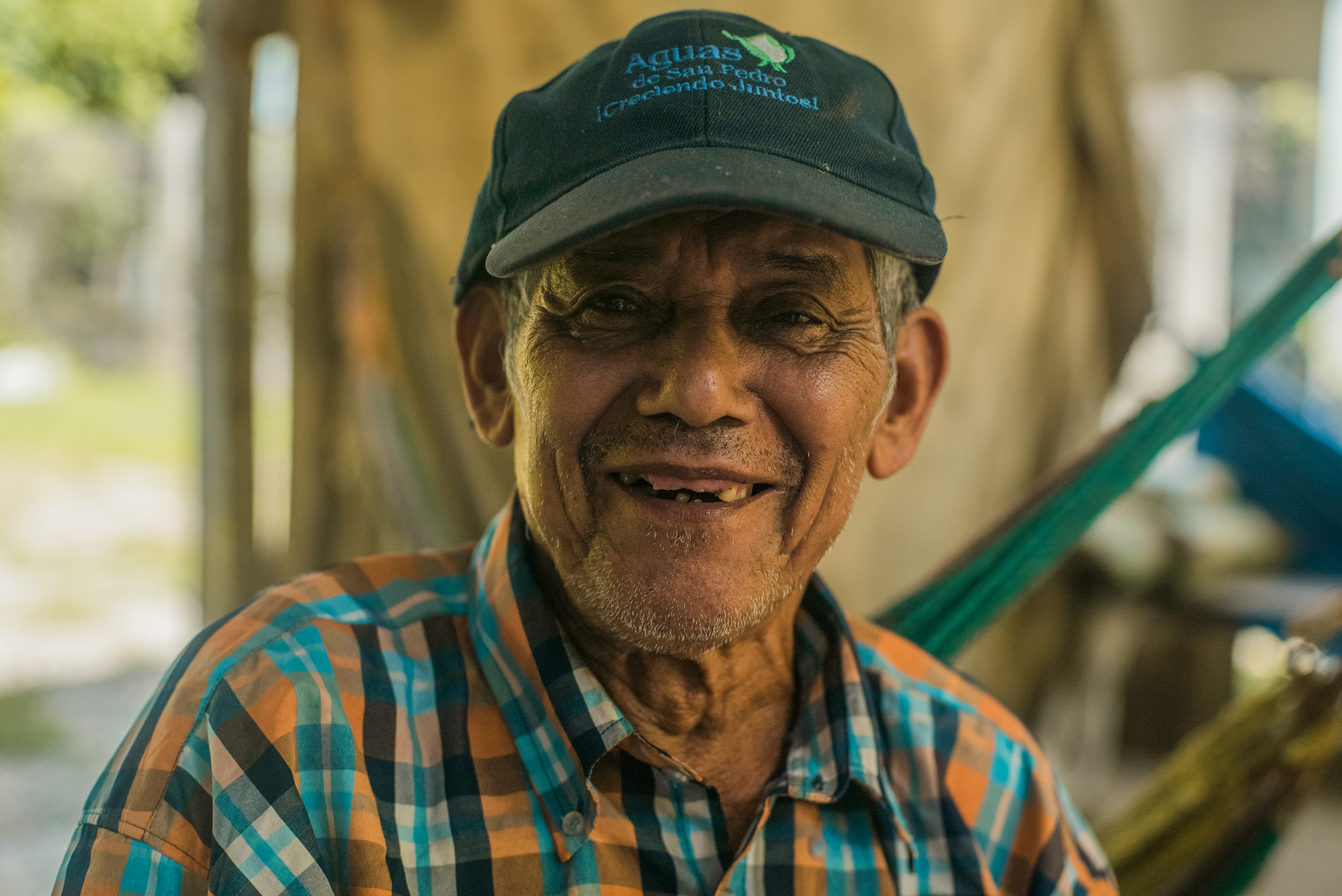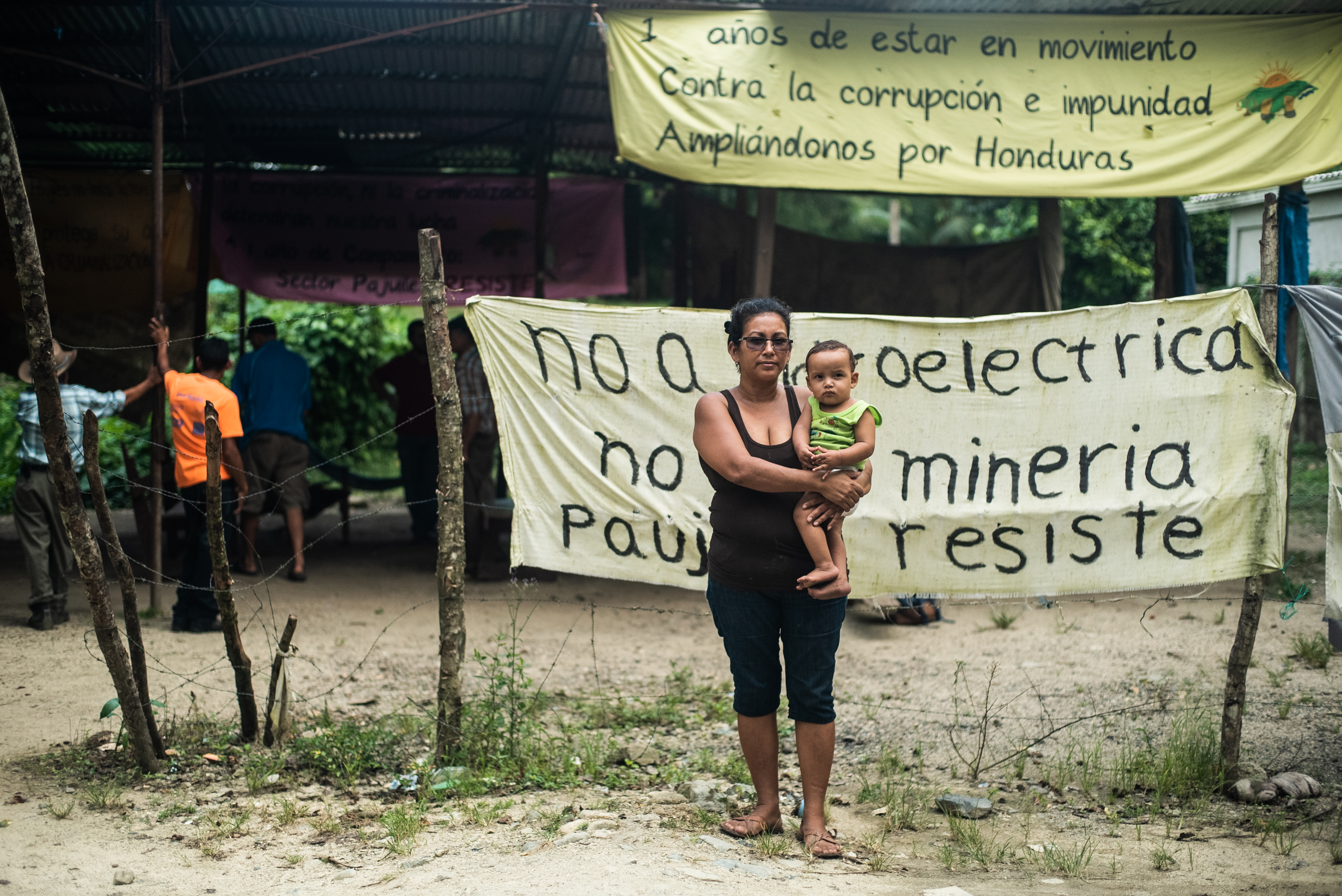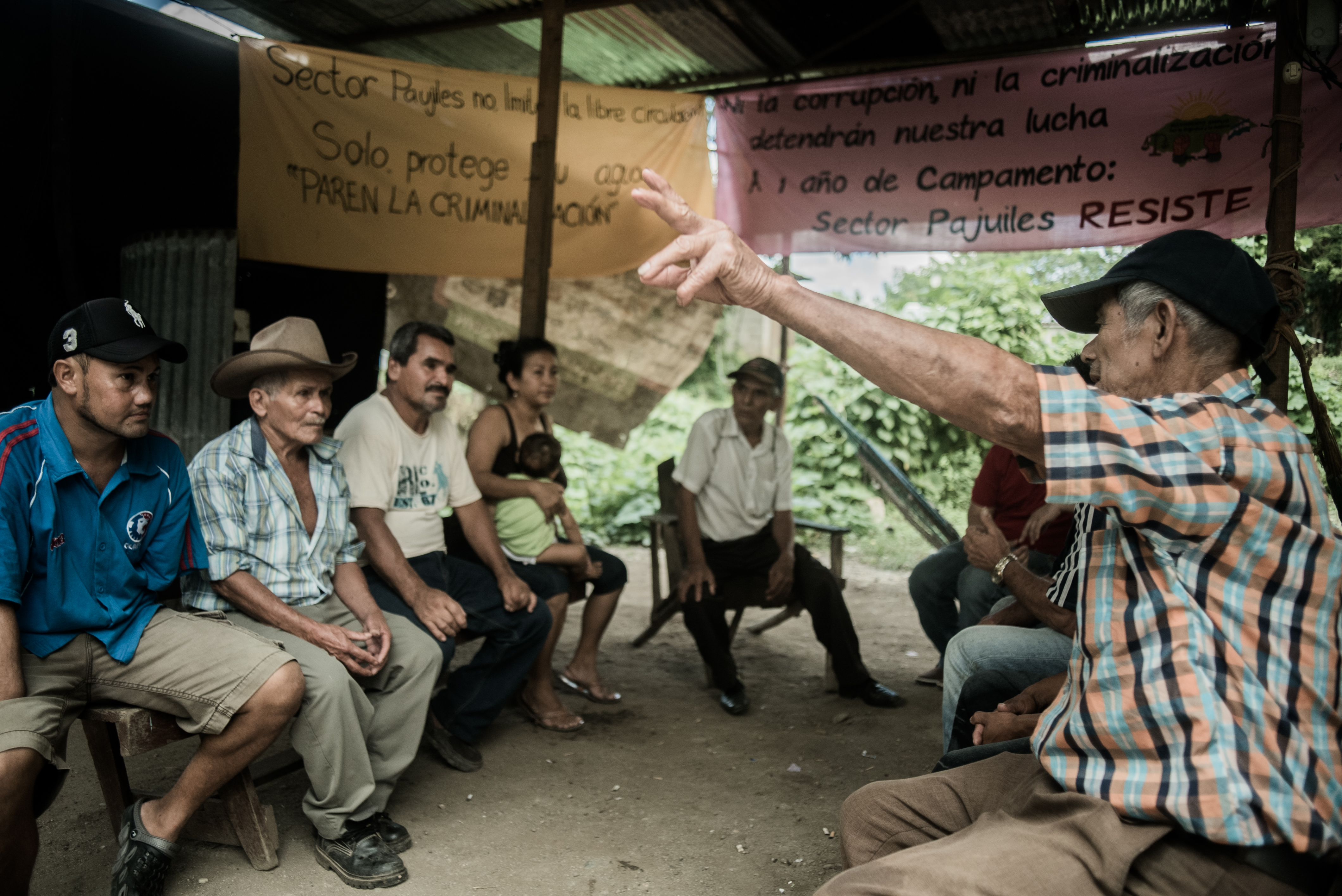This article was published more than 5 years ago.
October 1, 2019
By Cheryl Blowers, Fund Staff
For nearly 900 days, Santos Acevado, 79, has gone to protest the construction of a hydroelectric dam that is polluting a vital water source for his Honduran village of Pajuiles.
A grandfather who has lived there his entire life, Santos was one of ten activists arrested in August 2017 for their nonviolent defense of their land and health. Their cases are being supported by Fund for Global Human Rights grantee Movimento Amplio por la Dignidad y la Justicia (MADJ / Broad Movement for Dignity and Justice).
Santos and his neighbors launched their protest after discovering the contamination of their local river—their main source of drinking water and irrigation for the crops they sell. The residents discovered that a private company had started excavating upstream without any notice to the indigenous groups who lived nearby.

After attempts at getting answers from their local municipality went nowhere, people from several affected communities set up two peaceful protest camps at the entrance and exit of the work sites. They also contacted MADJ, an organization that provides legal aid to indigenous and other Honduran communities who are confronting corruption and defending their land and natural resource rights.
Retaliation against the protesters was swift. Private security arrived to evict the them from the resistance camps they had set up. This was then followed by the army. One protest camp was burned down and ten people were arrested, including Santos. They were jailed overnight without having their rights read or the charges explained to them. To this day, Santos has never received a single piece of paper with official charges.
Protesting corporate or government development in Honduras—and supporting their efforts—comes with tremendous personal risks. More than 130 land rights and environmental justice activists have been murdered in the last decade, including the 2016 killing of Fund grantee Berta Caceres, which garnered international outcry.
“From the first day we set the camp up, we talked about the commitment that would be needed and the risks we’d be exposed to,” says Albertina Lopez, a community-appointed representative who at seven months pregnant, was thrown in jail for taking part in the protests. “As a leader in the community, I have the responsibility to follow through regardless of what happens.”

Thanks to MADJ, the arrested villagers were released, and a court ordered for heavy equipment at the site to be removed and work on the dam to cease. While the company took away the equipment, they tried to get around the court order by continuing work through manual laborers using shovels and other handheld tools.
MADJ is continuing to work on having the cases of the villagers resolved or sent to trial by end of the year.

Seven major rivers in the region, including the one outside Pajuiles have been given to private companies for hydroelectric or other industrial projects. Up until the past decade, rivers were considered public land maintained by local municipalities and could not be owned by state or private entities.
Currently, MADJ’s legal team also is supporting several people from a municipality 20 miles to the east who are facing similar charges after protesting the construction of another dam. The Fund’s support helps cover legal fees as well as regional and national campaigns and media outreach for drawing attention and garnering support for the activists.


